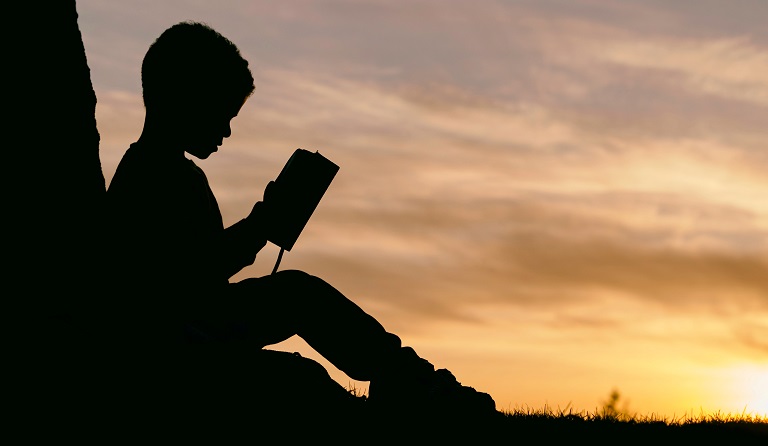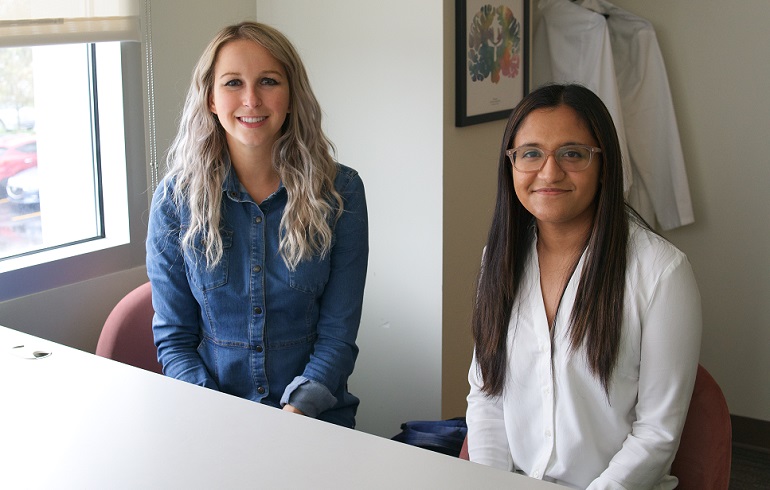
Researchers at Wayne State University have published a study focused on mental health consequences of the COVID-19 pandemic in a group of elementary-age children from two public schools and one private school, all located in urban areas with high infection rates in suburban Detroit.
The results showed that a child’s fear of getting COVID-19, or having a loved one contract the virus, increased over time, independent of race and socioeconomic status.
“This result is of great importance if we consider the mental health implications it has, since we know that symptoms of fear-based disorders such as anxiety and post-traumatic stress disorder typically begin during the first two decades of life,” said Amanpreet Bhogal, a trainee and research technician in the Department of Psychiatry and Behavioral Neurosciences who received her undergraduate degree from WSU in 2019.
“Are the kids really alright? Impact of COVID-19 on mental health in a majority Black American sample of schoolchildren,” was published in the journal Psychiatry Research.
Bhogal led the publication, along with her mentor, Assistant Professor of Psychiatry and Behavioral Neurosciences Hilary Marusak, Ph.D.

The study team also included David and Patricia Barron Endowed Chair in PTSD and Trauma Neurobiology Tanja Jovanovic, Ph.D., and lab Research Coordinator Breanna Borg, M.P.H.
Dr. Marusak started the WSU Trauma History Investigation of Neurodevelopment in Kids, or THINK, lab (www.wsuthinklab.com) in 2019. Its research focuses on the impact of stress and trauma during childhood on brain development, as well as neurodevelopmental mechanisms leading to anxiety and other fear-based disorders, such as post-traumatic stress disorder.
The children, 7 to 10 years old, completed a mental health screening in October 2019, and again in May and August 2020, during the pandemic. Seventy-two percent of the children surveyed identified as Black. The schools are located in Michigan's Oak Park and Southfield.
“Although our work does not primarily focus on COVID-19, we could not ignore the impact of this substantial threat to mental health on children,” Dr. Marusak said. “We were well-positioned to address this because this study actually started before the onset of the pandemic, which allowed us to test for overall changes in mental health and whether pre-existing mental health problems predict the impact of COVID-19 on youth. Most studies on disasters begin after the onset of the disaster and ask participants to recall their mental health before the pandemic, which is often unreliable.”
The study is also especially significant because the researchers focused on mental health in children, not the much more common COVID-19 research population – adults.
“One result that surprised me was the fact that children from lower socioeconomic status households showed a significant decrease in children’s internalizing anxiety and depression symptoms from October 2019 – prior to the pandemic – to May 2020. This was quite surprising considering we expect the pandemic to be associated with worsened mental health,” Bhogal said. “However, this may be because children from lower socioeconomic status households reported higher internalizing symptoms at the start of the study, before the pandemic. This means that the decrease in internalizing symptoms in lower socioeconomic status children made their levels comparable to those in the more advantaged group during the pandemic. Maybe the stay-at-home measures led to reduced peer stressors and academic pressures, which may improve mental health among some children.”
Stay-at-home measures may have reduced job-related stressors among some parents with the aid of unemployment alongside the first pandemic relief payment in the United States that was disbursed in April 2020, just before the families were first surveyed, in May 2020.
“It will be important for researchers to look for risk or protectors for mental health during COVID-19 among vulnerable groups, such as children, those from lower resourced households, and racial and ethnic minority groups,” Bhogal said.
Detroit was a COVID-19 hotspot early in the pandemic.
“There is research to suggest that racial and ethnic minority groups, including Black Americans, have been disproportionately impacted by the pandemic and associated mental health consequences. For example, recent work highlights a variety of social and psychological consequences of the pandemic on Black American communities in the U.S., including pervasive fear of contracting the disease, fears of racial bias in testing and treatment, frequent grief and loss, and re-traumatization of already-traumatized communities,” Dr. Marusak said. “The pandemic’s effects on children’s mental health may also differ based on socioeconomic status, with recent research showing that lower resource families are at greater risk of adverse mental health outcomes during the COVID-19 pandemic and other disasters.”